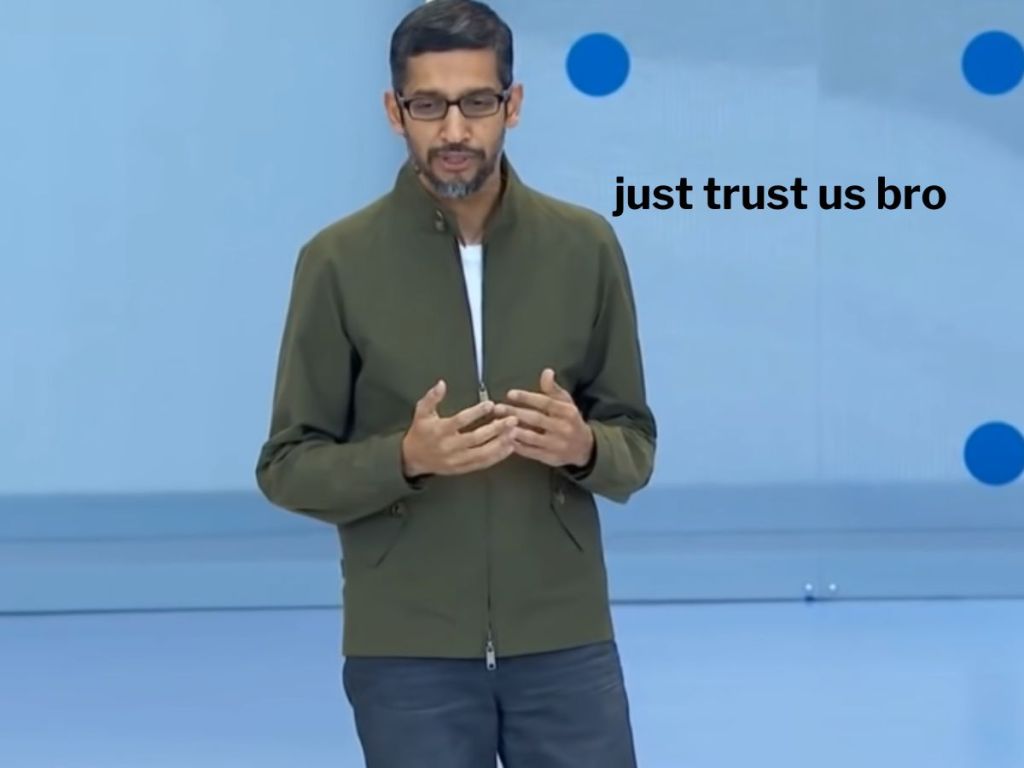Last week, Google pushed out a brand new AI assistant, Gemini, it claims surpasses other chatbots in the market. Shortly after it was released, industry experts noticed that the company’s impressive demo video for Gemini was fake!
Long story short, the demo video for Gemini showcased the multimodal AI assistant responding to what it sees on camera in real-time, and replying to audio prompts. However, in reality, Gemini only responded to text prompts: the camera footage was inserted in post-production.
A Google spokesperson who responded to the online criticism even admitted so: The video was made “using still image frames from the footage, and prompting it via text”.
Believe it or not, it’s not Google’s first time faking a demo for a new product. In fact, demos by tech companies are often faked, and it’s somewhat pretty common in the industry.
Google’s fake demo: 2018
In 2018, Google introduced an AI assistant named ‘Duplex’ that it claims is able to make phone calls on your behalf. CEO Sundar Pichai demonstrated this by ringing a hair salon and a restaurant to book appointments.
Pichai assured the audience that those phone calls were “real”.
However, later, an investigation by Axios revealed that the phone calls weren’t as genuine and real-time as Pichai led the audience to believe. The absence of background noise, phone call recipients not immediately identifying the name of their establishment (e.g. “Hello, welcome to McDonald’s, how can I help you?”) were some major suspicious clues.
Cyberpunk 2077 fake demo: 2021
In 2021, video game publishing giant CD Project RED copped severe backlash after being exposed for showing off a demo several years ago that was almost entirely fake.
Bloomberg’s Jason Schrier noted in a report that the video game publisher “hadn’t yet finalised and coded the underlying gameplay systems, which is why so many features, such as car ambushes, were missing from the final product” when it was released.
In other words, more effort was put into crafting an impressive demo for audiences and critics compared to actually designing the video game.
An open secret in Silicon Valley
On-stage demos play a significant part of the introduction and promotion of a product for tech companies. One of the biggest aims of demos is to attract public attention and hype before a product officially launches. So, the degree to which a product’s capabilities are genuine is often unknown.
The 2015 film Steve Jobs famously has a scene that dramatises this. It was 1984, and Steve Jobs (played by Michael Fassbender) was about to go on stage to demo the Macintosh 128K. However, Jobs was determined that the Macintosh said “hello”, but the Macintosh 128K was incapable of doing so at the time.
“I have another idea – it’s deceptive and borderline unethical…” an engineer said.
“You’re gonna demo a 128K computer on a 512[K computer]?” asked Joanna Hoffman (played by Kate Winslet) in disbelief.
“It’s warm, it’s playful… and it needs to say hello,” Jobs answered.
Best to keep this in mind going forward when you tune in to the next AI demo.



